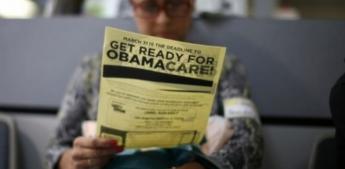Related Topics
Right Angle Club: 2015
The tenth year of this annal, the ninety-third for the club. Because its author spent much of the past year on health economics, a summary of this topic takes up a third of this volume. The 1980 book now sells on Amazon for three times its original price, so be warned.
Supreme Court Rescues Obamacare, June 26, 2015

|
| Obamcare |
The case of King v. Burwell was argued before the United States Supreme Court March 4, 2015, and the decision was reported June 26, 2015. In a clear victory for President Obama, the Court held that it was not the intent of Congress that a phrase in the statute, even though repeated six times, should be the final meaning of the law. Someday a participant in the writing of the law will come forward and tell the story of how the words got into the statute in the first place, but at the moment all we know is the words are there, and the law is unworkable if they remain. Just about everyone would agree these two statements are true. Furthermore, it is clear only Congress could change them, and Congress has changed parties since they were originally written; so they probably cannot be changed at all before new elections are held, unless the President agrees with Congress to do it. There is a third possibility: Congress and the President could make private agreements about what they would compromise on and present a friendly adjustment. Whether that was tried and failed, or whether it was not tried at all, is unclear. So, the Supreme Court did what it never wants to do, it changed the law.
Since millions of citizens had watched (on C-Span) the legislation, dropped on the desks of astounded Congressmen, with no opportunity permitted to debate or amend it. Indeed, even to read most of it before it was voted on, the public is inclined to take the Court's word for it, that...
"The Affordable Care Act contains more than a few examples of inartful drafting".Whether the clause in question was accidental or not, is a matter of opinion. The clause in dispute reads, and is repeated six times, as
Tax credits "shall be allowed" for any "applicable taxpayer", but only if the taxpayer has been enrolled in an insurance plan through"an Exchange established by the State under [42 U/S.C., pp18031]" pp36B(b)-(c)Some idea of the Court's historic position is given in a few quotes:
"In a democracy, the power to make the law rests with those chosen by the people. Our role is more confined--"to say what the law is."--Marbury v. Madison, 1 Cranch 137, 177 (1803)In the end, three conservative Justices, Scalia, Thomas, and Alito found there was no reason to change the language of the statute as ambiguous, and four liberal Justices, Ginsburg, Breyer, Sotomayer, and Kagan found there was. The two swing Justices, Kennedy and Roberts, joined the liberals in finding the statute ambiguous, for a final vote of 6-3."Oftentimes the meaning--or ambiguity--of certain words or phrases may only become evident when placed in context."--Brown and Williamson, 529 U.S. at 132.
"Reliance on context and structure in statutory interpretation is a 'subtle business, calling for great wariness lest what professes to be mere rendering becomes creation and attempted interpretation of legislation becomes legislation itself.'-- Palmer v. Massachusetts U.S. 79,83 (1939)
Judging from the global circumstances, it is probably fair to conclude that ambiguity was probably not the only issue involved, and it was probably inartful for the Court to establish a precedent that such a restructured role for the Court was either necessary or desirable. The history of Canada's use of this device to coerce provinces into joining the national health system was well known in Canada at the time. And the McCarran Ferguson Act has restricted insurance administration to a State level for seventy years. Both of these examples would seem to have provided a sounder basis for the Court to interfere in what really seems like pretty clear language in the law.
Originally published: Thursday, June 25, 2015; most-recently modified: Thursday, June 06, 2019